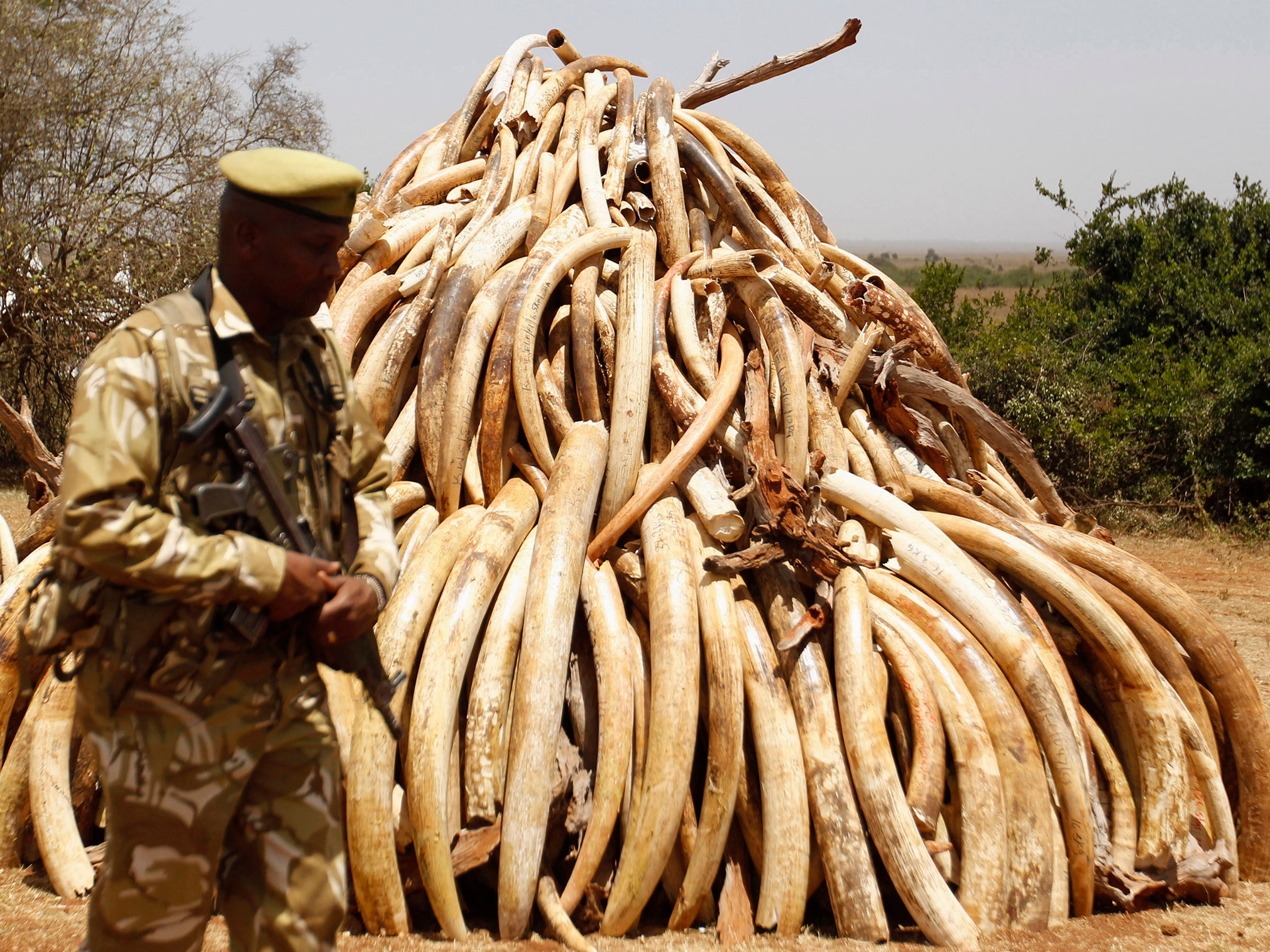Attempts to reopen global elephant ivory trade fail
Debate at wildlife watchdog becomes heated over allowing sales that would ‘fuel poaching’

Attempts by four African countries to resume international ivory sales have failed.
Experts had feared a repeat of a 2008 trial, when ivory stockpiles were sold, prompting a surge in elephant poaching.
But after heated debate, delegates at the world’s largest conference on wildlife trade, the Convention on International Trade in Endangered Species (Cites), rejected a proposal by Botswana, Namibia and Zimbabwe to sell stockpiled ivory on their home soil as well as ivory from South Africa.
Zambia also abandoned a bid to sell its ivory stockpiles as part of a proposal to downlist its elephants to Appendix II, which would have loosened protection for the animals.
Matt Collis, head of delegation at Cites for the International Fund for Animal Welfare (Ifaw), said: “Any legal market in ivory presents opportunities for the laundering of illegal ivory.
“Parties need to focus on the closure of domestic markets and markedly increase their law-enforcement efforts to prevent illegal trade. Poaching skyrocketed across Africa after the last ivory stockpile sales back in 2008. Ifaw is delighted governments have chosen to reject repeating that failed experiment.”
Ivory smuggling out of Africa rose by 71 per cent following the 2008 stockpile sales, Ifaw says.
At least 20,000 elephants are illegally killed each year for their ivory – with an average of 55 elephants poached every day in Africa - the equivalent of one every 26 minutes.
However, countries rejected a motion that would have put all southern African elephants on Appendix I, offering the highest protection level that would have banned all trade.
The European Union was among those saying the move did not meet “biological criteria”.
All African elephants were given the highest listing in 1989 but the protection was weakened in 1997 and 2000 when populations in Botswana, Namibia, South Africa and Zimbabwe were downlisted to Appendix II – a less endangered status – to allow sales of ivory stockpiles to Japan and China.
The latest decision "mean it’s status quo for elephants. No international commercial ivory trade is permitted and that is what needs to happen,” said Susan Lieberman of the Wildlife Conservation Society.
Separately, delegates voted to protect giraffes for the first time, drawing praise from conservationists and scowls from some sub-Saharan African nations.
Tanzania said it had a stable and increasing population of giraffes, but official figures show giraffe numbers have fallen 40 per cent in 30 years.
Subscribe to Independent Premium to bookmark this article
Want to bookmark your favourite articles and stories to read or reference later? Start your Independent Premium subscription today.

Join our commenting forum
Join thought-provoking conversations, follow other Independent readers and see their replies